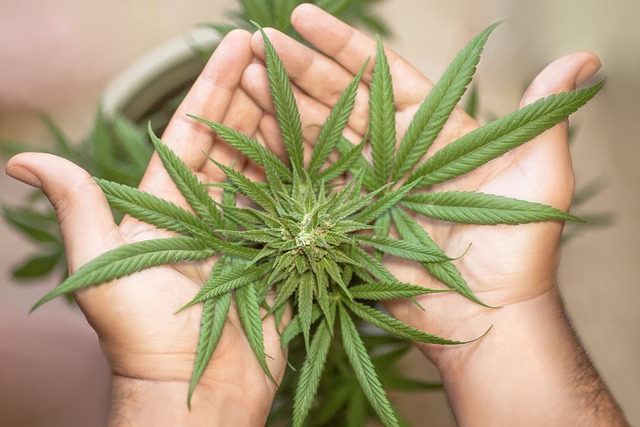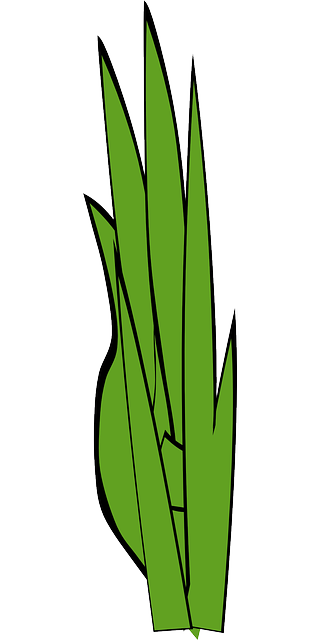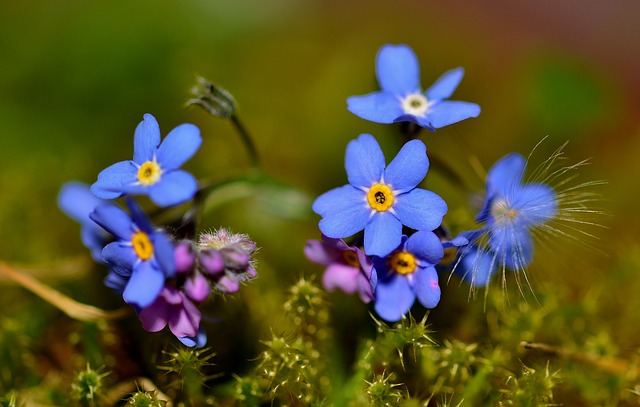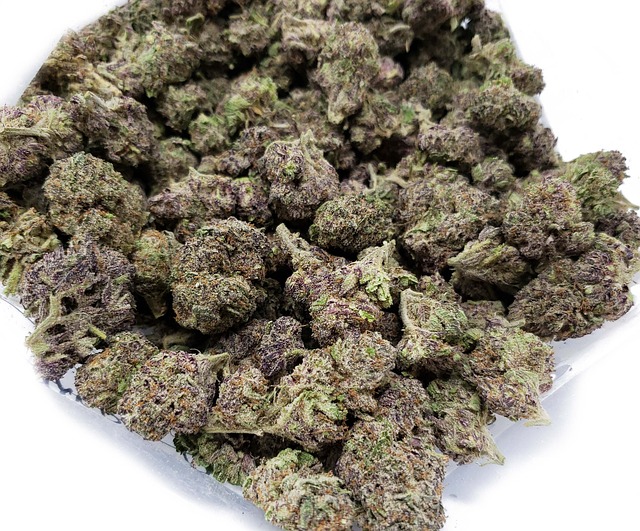2023 clarified that THCA (Tetrahydrocannabinolic Acid) is legally available in Iowa under specific conditions, where it falls under federal and state regulations allowing hemp-derived products with less than 0.3% THC. In Iowa, THCA itself isn't psychoactive but can convert to THC when heated. THCA has garnered attention for its potential therapeutic properties, including anti-inflammatory and neuroprotective effects. The state's legal framework requires careful adherence to labeling and third-party lab testing to ensure compliance. Iowa's agricultural sector is adept at cultivating THCA flowers within a regulated environment, utilizing both indoor and outdoor methods to produce high-quality products. Consumers can access THCA through various forms like vaporization, edibles, or tinctures, each offering different experiences and health benefits, with the option to use it for relaxation, pain relief, and stress management. Users are advised to consult medical professionals given individual differences in response to cannabinoids, ensuring safe and informed usage of THCA products legally in Iowa.
Discover the transformative properties of THCA flower, a cannabinoid poised to capture attention in the wellness and medicinal fields. As we delve into the intricacies of THCA’s potential and its legal status in Iowa, this article offers a comprehensive exploration. From understanding how it differs from its psychoactive counterpart, THC, to navigating the cultivation processes in the Hawkeye State, we’ll cover the science, legality, and utilization of THCA flower. Join us on this informative journey to unlock the secrets of THCA legal in Iowa and how it fits into the state’s evolving landscape for cannabinoid consumption.
- Unlocking THCA's Potential: A Comprehensive Guide to THCA Flower Legality in Iowa
- The Science Behind THCA: What Makes It a Notable Cannabinoid
- Sourcing and Cultivation of THCA Flower in Iowa: Understanding the Process
- Legal Landscape for THCA in Iowa: A Breakdown of State Laws and Regulations
- Utilizing THCA Flower: Consumption Methods and Their Effects
Unlocking THCA's Potential: A Comprehensive Guide to THCA Flower Legality in Iowa

Delta-9 tetrahydrocannabinolic acid (THCA) is a non-psychoactive cannabinoid found in raw cannabis flowers, which, when heated, converts into the well-known psychoactive compound THC. As interest in the potential therapeutic benefits of THCA grows, enthusiasts and researchers are exploring its properties more deeply. In Iowa, the legal landscape concerning THCA flower has been evolving. The 2017 Farm Bill legally defined hemp, which contains less than 0.3% delta-9 THC, distinguishing it from marijuana. This legislation paved the way for the cultivation and sale of hemp-derived products, including THCA flower, provided they comply with state and federal regulations.
Iowa’s approach to cannabis and its derivatives is governed by the Iowa Controlled Substances Act, which classifies THC as a Schedule I controlled substance. However, a provision in this act allows for the production of hemp and hemp-derived products, including THCA flower, as long as they meet the federal threshold of less than 0.3% delta-9 THC. It’s crucial for consumers to ensure that any THCA flower they purchase is derived from hemp and tested by a third-party lab to confirm its THC content and purity, adhering to Iowa’s strict regulations. Understanding the legal distinctions between THC and THCA, as well as staying informed on state legislation updates, is key for those interested in exploring the potential benefits of THCA flower in Iowa.
The Science Behind THCA: What Makes It a Notable Cannabinoid

Delta-9-tetrahydrocannabinolic acid (THCA) is a non-psychoactive cannabinoid found in raw or uncured cannabis plants, which, when heated or decarboxylated, converts to the more well-known psychoactive cannabinoid THC. The unique properties of THCA have garnered scientific interest for its potential therapeutic benefits. Research indicates that THCA interacts with the body’s endocannabinoid system through its affinity with both CB1 and CB2 receptors, suggesting a broad range of effects. In studies, THCA has shown promising anti-inflammatory, anti-nausea, anti-emetic (reducing nausea and vomiting), and neuroprotective properties, making it a notable compound within the cannabis plant. As of my knowledge cutoff in 2023, THCA’s legal status in Iowa allows for its use and research under certain conditions, aligning with federal guidelines that differentiate between hemp-derived products and cannabis derived from marijuana plants. This distinction is crucial for navigating the complex landscape of cannabinoid legislation across states, making it essential for consumers and researchers to stay informed about the evolving legal framework surrounding THCA and other cannabinoids. The science behind THCA continues to evolve, with ongoing research potentially unveiling even more health benefits, further solidifying its notable place in the cannabis community.
Sourcing and Cultivation of THCA Flower in Iowa: Understanding the Process

In recent years, THCA (Tetrahydrocannabinolic Acid) flower has garnered attention within the cannabis community for its potential therapeutic benefits and unique effects. As of the knowledge cutoff in early 2023, THCA is legal in Iowa under certain conditions. The cultivation of THCA flower here follows specific regulations that reflect both state and federal guidelines. Iowa’s agricultural heritage lends itself well to the meticulous process of growing THCA flowers, which require a controlled environment with careful attention to soil quality, climate control, and light exposure to produce high-quality, potent buds. Local growers adhere to strict standards to ensure compliance with state laws, which include obtaining licenses for both cultivation and distribution. The sourcing of THCA flower in Iowa is primarily from licensed facilities that utilize both indoor and outdoor growing methods tailored to the local climate. These facilities prioritize sustainability and high-yield practices to meet the growing demand for this non-psychoactive cannabinoid. As a result, consumers in Iowa have access to a range of THCA flower products that are both effective and legally compliant with state regulations.
The cultivation process of THCA flower in Iowa is a delicate balance of art and science. Farmers and horticulturists work in tandem to nurture the plants from seedling to maturity, ensuring that they reach their full potential in terms of cannabinoid content and terpene profiles. The state’s unique geography and seasonal variations present challenges and opportunities for THCA cultivators. Indoor growing operations use advanced lighting systems and temperature control to mimic ideal conditions, while outdoor growers take advantage of Iowa’s fertile soil and longer daylight hours during the summer months. Throughout the cultivation process, continuous monitoring and adjustment are crucial to maintain optimal growth conditions, as THCA flowers are particularly sensitive to their environment. This diligence pays off in the form of high-quality, legally compliant THCA flower that meets the needs and expectations of Iowa’s consumers.
Legal Landscape for THCA in Iowa: A Breakdown of State Laws and Regulations

In the context of cannabis derivatives, THCA, or tetrahydrocannabinolic acid, has garnered attention for its potential therapeutic benefits and distinct legal status. In Iowa, the legal landscape for THCA is nuanced, reflecting a complex interplay between federal and state regulations. As of the knowledge cutoff date, Iowa’s Controlled Substances Act categorizes THCA as a Schedule I substance alongside other cannabinoids like THC. This classification means that THCA is illegal to manufacture, distribute, or possess with intent to distribute within the state, except for specific research programs approved by the Federal Drug Administration (FDA). However, hemp-derived THCA products containing less than 0.3% delta-9-THC on a dry weight basis are legal under the 2018 Farm Bill and associated state regulations. Iowa’s hemp program oversees the production and sale of these products, ensuring they comply with the established threshold to differentiate them from Schedule I substances. It’s crucial for consumers and businesses dealing with THCA in Iowa to stay abreast of these regulations as they evolve, particularly with the ever-changing legal landscape surrounding cannabis and its derivatives.
Navigating the legal waters of THCA in Iowa requires a clear understanding of both state and federal laws. The 2018 Farm Bill opened pathways for the legal cultivation of hemp and its derivatives, including THCA, provided they meet specific criteria. On a state level, Iowa has established its own regulatory framework to govern hemp production, processing, and sales. This includes licensing requirements for growers and processors, as well as stringent testing protocols to ensure the THC content remains below the legal limit. It’s important for stakeholders to be aware that while hemp-derived THCA products are permissible, any form of cannabis plant with higher THC levels remains illegal outside of state-sanctioned research programs. As such, businesses and consumers in Iowa must diligently adhere to these regulations to operate lawfully within the state’s market for THCA products.
Utilizing THCA Flower: Consumption Methods and Their Effects

THCA, or tetrahydrocannabinolic acid, is a non-psychoactive cannabinoid found in raw cannabis plants and which degrades into THC upon heating. As of the knowledge cutoff in 2023, THCA’s legal status in Iowa aligns with the broader federal and state regulations that permit the use of hemp-derived products containing less than 0.3% THC, provided they are sold and labeled appropriately. For those interested in utilizing THCA flower, there are several consumption methods available, each offering distinct effects and experiences.
One popular method for consuming THCA flower is through smoking or vaporizing it. This direct administration allows for immediate effects as the THCA is converted to THC upon heating, providing users with the psychoactive properties associated with cannabis. Vaporization is often favored over traditional smoking due to its potential health benefits and reduced harmful byproducts. Users report feelings of relaxation, euphoria, and pain relief. Another consumption method is infusion, where THCA flower is used to create oils, tinctures, or edibles. These products can offer a longer-lasting effect as the cannabinoids are absorbed through the digestive system. Infusions also allow for precise dosing, which is beneficial for both novice and experienced users. The effects from ingested THCA can be more potent and prolonged, making it suitable for various conditions, including inflammation and stress.
In Iowa, where the legality of THCA flower is consistent with federal guidelines, consumers have access to a variety of products that can cater to their preferences and needs. Whether choosing to vaporize or infuse, users should always be mindful of dosage, as the effects of THCA can be powerful and individual responses may vary. It’s advisable for users to consult with healthcare professionals before incorporating THCA into their wellness routines, especially if they have underlying health conditions or are taking other medications. With the growing acceptance of cannabis derivatives, understanding the nuances of THCA, its legal standing in Iowa, and the diverse methods of consumption can empower users to make informed decisions about their use.
THCA, or tetrahydrocannabinolic acid, has emerged as a significant cannabinoid within the cannabis plant landscape, particularly in states like Iowa where its legality and cultivation are being increasingly understood and regulated. This article has delved into the multifaceted nature of THCA flower, from its scientific properties to the practical aspects of its legal status, cultivation, and consumption. As the understanding and utilization of THCA continue to evolve, it is clear that this compound holds great potential for various applications. For those in Iowa and beyond, staying informed on the legalities surrounding THCA is crucial, as regulations can vary widely. By educating oneself on the origins, effects, and legal standing of THCA flower in Iowa, consumers and enthusiasts can make informed decisions that align with their interests and comply with state laws. This comprehensive guide serves as a testament to the growing body of knowledge about this notable cannabinoid and its place within the realm of wellness and therapeutic use.
